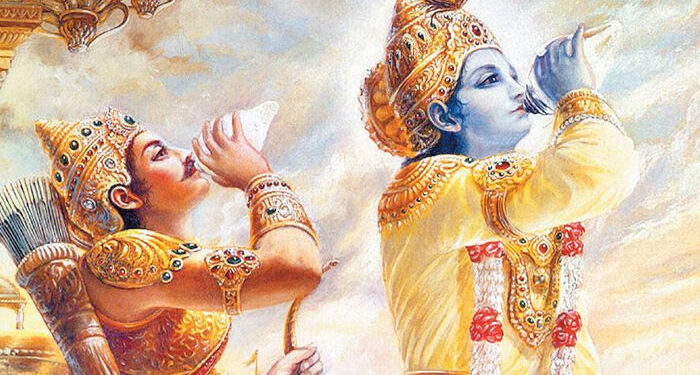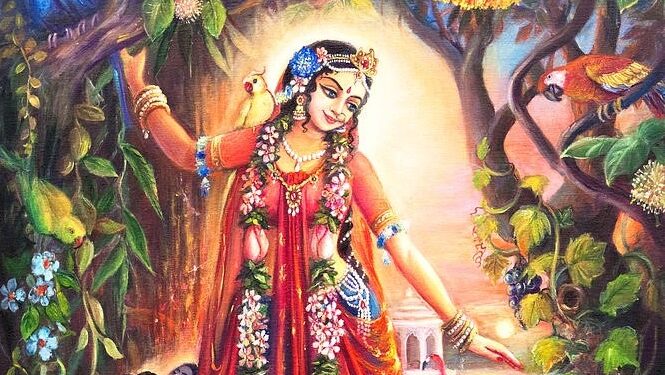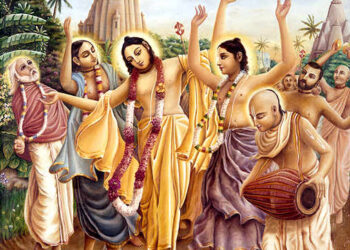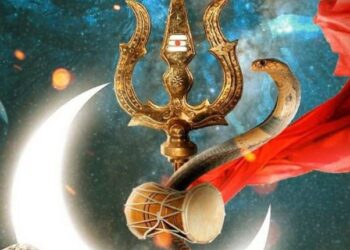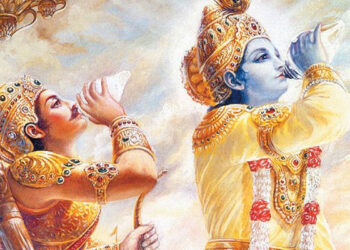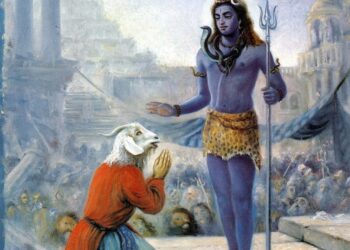TEXT 27
icchā-dveṣa-samutthena
dvandva-mohena bhārata
sarva-bhūtāni sammohaṁ
sarge yānti parantapa
SYNONYMS
icchā—desire; dveṣa—and hate; samutthena—arisen from; dvandva—of duality; mohena—by the illusion; bhārata—O scion of Bharata; sarva—all; bhūtāni—living entities; sammoham—into delusion; sarge—while taking birth; yānti—go; parantapa—O conqueror of enemies.
TRANSLATION
O scion of Bharata, O conqueror of the foe, all living entities are born into delusion, bewildered by dualities arisen from desire and hate.
PURPORT
The real constitutional position of the living entity is that of subordination to the Supreme Lord, who is pure knowledge. When one is deluded into separation from this pure knowledge, he becomes controlled by the illusory energy and cannot understand the Supreme Personality of Godhead. The illusory energy is manifested in the duality of desire and hate. Due to desire and hate, the ignorant person wants to become one with the Supreme Lord and envies Kṛṣṇa as the Supreme Personality of Godhead. Pure devotees, who are not deluded or contaminated by desire and hate, can understand that Lord Śrī Kṛṣṇa appears by His internal potencies, but those who are deluded by duality and nescience think that the Supreme Personality of Godhead is created by material energies. This is their misfortune. Such deluded persons, symptomatically, dwell in dualities of dishonor and honor, misery and happiness, woman and man, good and bad, pleasure and pain, etc., thinking, “This is my wife; this is my house; I am the master of this house; I am the husband of this wife.” These are the dualities of delusion. Those who are so deluded by dualities are completely foolish and therefore cannot understand the Supreme Personality of Godhead.
TEXT 28
yeṣāṁ tv anta-gataṁ pāpaṁ
janānāṁ puṇya-karmaṇām
te dvandva-moha-nirmuktā
bhajante māṁ dṛḍha-vratāḥ
SYNONYMS
yeṣām—whose; tu—but; anta—gatam—completely eradicated; pāpam—sin; janānām—of the persons; puṇya—pious; karmaṇām—whose previous activities; te—they; dvandva—of duality; moha—delusion; nirmuktāḥ—free from; bhajante—engage in devotional service; mām—to Me; dṛḍha-vratāḥ—with determination.
TRANSLATION
Persons who have acted piously in previous lives and in this life and whose sinful actions are completely eradicated are freed from the dualities of delusion, and they engage themselves in My service with determination.
PURPORT
Those eligible for elevation to the transcendental position are mentioned in this verse. For those who are sinful, atheistic, foolish and deceitful, it is very difficult to transcend the duality of desire and hate. Only those who have passed their lives in practicing the regulative principles of religion, who have acted piously and who have conquered sinful reactions can accept devotional service and gradually rise to the pure knowledge of the Supreme Personality of Godhead. Then, gradually, they can meditate in trance on the Supreme Personality of Godhead. That is the process of being situated on the spiritual platform. This elevation is possible in Kṛṣṇa consciousness in the association of pure devotees, for in the association of great devotees one can be delivered from delusion.
It is stated in the Śrīmad-Bhāgavatam (5.5.2) that if one actually wants to be liberated he must render service to the devotees (mahat-sevāṁ dvāram āhur vimukteḥ); but one who associates with materialistic people is on the path leading to the darkest region of existence (tamo-dvāraṁ yoṣitāṁ saṅgi-saṅgam). All the devotees of the Lord traverse this earth just to recover the conditioned souls from their delusion. The impersonalists do not know that forgetting their constitutional position as subordinate to the Supreme Lord is the greatest violation of God’s law. Unless one is reinstated in his own constitutional position, it is not possible to understand the Supreme Personality or to be fully engaged in His transcendental loving service with determination.


